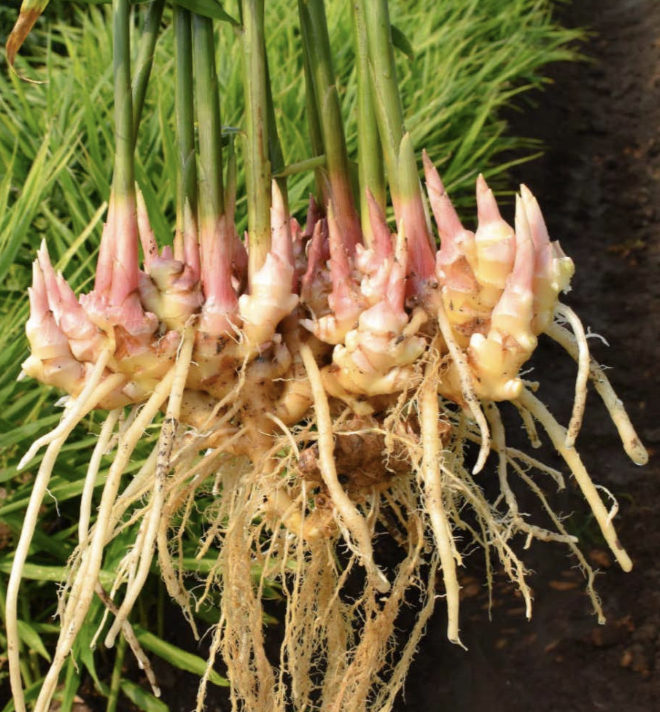FOOD AS MEDICINE GINGER ROOTS
Ginger is a blossoming plant that grows throughout the year and though it is grown in almost every part of the world, is said to be native to southern Asia. Ginger is the favourite of many homes when it comes to species, folk medicine, and home remedy to a lot of ailments. To underscore the importance this multi-usage root, the cost of one pound of ginger equaled the cost of one sheep in the 14th century when its raw and preserved form was first imported into Europe!
Ginger root or simply Ginger is in the family of Zingiberaea which also includes turmeric, cardamon, Galangal, botanically called Zingiber officinale, and is known by different names depending on which part of the world it is found. It called zinzibil in Amharic, zanjabeel in Arabic, Atale in Yoruba, Chita in Hausa, and Jinja in Igbo.
What ever name it is known by in different parts of the world, the truth of the matter is that it’s been adjudged to serve medicinal and health benefits either as spices for flavouring varieties of foods and drinks or just as tea.

During the peak of the COVID 19 Pandemic last year 2020, it was a constant on the menu list of many homes either for just chewing, used as part of the herbal mix for steaming or part of the natural mix of lemon and garlic brewed as tea. It is said to be both decongestant, anti-coagulant and antioxidant
According to WebMD, a team of health experts across a broad specialty geared towards achieving healthier lifestyle, “Ginger is loaded with antioxidants, compounds that prevent stress and damage to your body’s DNA. They may help your body fight off chronic diseases like high blood pressure, heart disease, and diseases of the lungs, plus promote healthy aging”.
They Certain chemical compounds in fresh ginger help your body ward off germs. They’re especially good at halting growth of bacteria like E. coli and shigella, and they may also keep viruses like RSV at bay.
Keeps Your Mouth Healthy
Ginger’s antibacterial power may also brighten your smile. Active compounds in ginger called gingerols keep oral bacteria from growing. These bacteria are the same ones that can cause periodontal disease, a serious gum infection.
Calms Nausea
The old wives’ tale may be true: Ginger helps if you’re trying to ease a queasy stomach, especially during pregnancy. It may work by breaking up and getting rid of built-up gas in your intestines. It might also help settle seasickness or nausea caused by chemotherapy.
Soothes Sore Muscles
Ginger won’t whisk away muscle pain on the spot, but it may tame soreness over time. In some studies, people with muscle aches from exercise who took ginger had less pain the next day than those who didn’t.
Eases Arthritis Symptoms
Ginger is an anti-inflammatory, which means it reduces swelling. That may be especially helpful for treating symptoms of both rheumatoid arthritis and osteoarthritis. You might get relief from pain and swelling either by taking ginger by mouth or by using a ginger compress or patch on your skin
Curbs Cancer Growth
Some studies show that bioactive molecules in ginger may slow down the growth of some cancers like colorectal, gastric, ovarian, liver, skin, breast, and prostate cancer. But much more research is needed to see if this is true.
Lowers Blood Sugar
One recent small study suggested that ginger may help your body use insulin better. Larger studies are needed to see if ginger could help improve blood sugar levels
Eases Period Pains
Got menstrual cramps? Ginger powder may help. In studies, women who took 1,500 milligrams of ginger powder once a day for 3 days during their cycle felt less pain than women who didn’t.
Lowers Cholesterol
A daily dose of ginger may help you battle your “bad” or LDL cholesterol levels. In a recent study, taking 5 grams of ginger a day for 3 months lowered people’s LDL cholesterol an average of 30 points.
Protects Against Disease
Ginger is loaded with antioxidants, compounds that prevent stress and damage to your body’s DNA. They may help your body fight off chronic diseases like high blood pressure, heart disease, and diseases of the lungs, plus promote healthy aging.
Relieves Indigestion
If you live with chronic indigestion, also called dyspepsia, ginger could bring some relief. Ginger before meals may make your system empty faster, leaving less time for food to sit and cause problems.
Ginger is generally safe and well tolerated by many, however some have complained of heart burn when taken in powdered form. It is also said to interfere with certain anticoagulants like warfarin or aspirin
ADAPTED from WebMD
